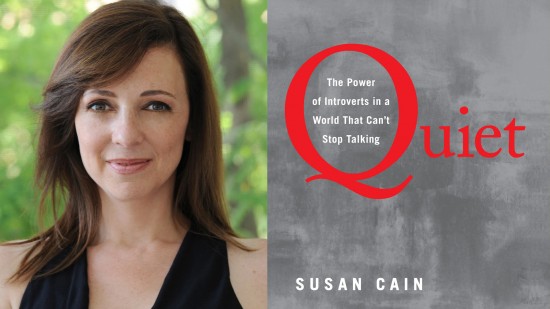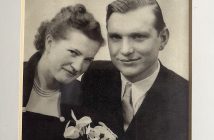We don’t like people, we don’t like small talk, we are shy, we want to be alone, and we can fix all of this by becoming an extrovert. These are the myths that are masking the power of introverts.
Outgoing, energized, talkative and those who appear overly affectionate, are all valued characteristics of an extrovert; but that is not who I am. Goal oriented, adventurous, creative, observant and quiet are some of the words I believe describe my personality. Growing up I once heard that it is those who are outgoing and extroverted that are successful and therefore happier in life. Having always had the entrepreneurial dream of working with people in a creative environment, being an introvert hearing this was discouraging. From grades based solely on oral participation in classrooms to high paying spotlight positions in the workforce, it feels as though I am living in a society designed for extroverts. A bias towards introverts turned cultural stereotype it devalues the benefits of quietness and ignores a whole spectrum of talent, creativity and energy.
Live. Learn. Work. Play. All Together. Togetherness is a common core for many of today’s societal settings, whether it is at home, at work or in school. Classrooms in particular have ventured from traditional teaching methods to more interactive trends that are being promoted now more than ever. Without a doubt you have probably heard the terms “collaborative learning” or “group work” floating around. While these styles of learning have proven to be effective, the concern lies in neglecting the needs of some introverts. Introverts can become easily drained with constant interaction and in fact take comfort in recharging in quieter environments. When schools overlook the introverted personality, we must become are own worst enemies for a moment of participation and acceptance.
Lately, I have been asking myself why.
“Don’t think of introversion as something that needs to be cured.”
-Susan Cain
Now I’m not talking about Elle Woods in Legally Blonde but imagine dreaming of becoming a successful lawyer but wondering if you have what it really takes. A lawyer is someone commonly thought to be comfortable in the spotlight, possess strong interpersonal skills, is skillful in writing and has excellent public speaking skills, enough to address an entire courtroom. This was the dream for Susan Cain, author of Quiet: The Power of Introverts in a World that Can’t Stop Talking. By her early twenties, Cain started practicing corporate law on Wall Street. Daunting right? All eyes on her and as a self-proclaimed introvert she found herself contemplating if she had what she thought it took to become a successful lawyer. Fearing the aggressive loudmouth environment, she chose to accept her nature of being and realized that it actually came with a lot of unique advantages. Raising her voice and pounding the table in negotiations was unnecessary. Instead Cain highlights her ability to form close loyal relationships with clients, embrace her talent of listening and being able to work efficiently in quiet environments and through perseverance get the job done.
“Everyone shines, given the right lighting.”-Susan Cain
Cain makes some very good points on the advantages of being an introvert and the benefits we sometimes miss out on by ignoring them. Quiet does not mean shy in Cain’s perspective, “while being shy can be painful being introverted is not.” However the two do appear to look the same to the outside world, providing insight as to how society tends to perceive leadership roles as being a job for extroverts only. Cain points out, while that may be true in some situations, introverts report often feeling unfazed by others opinions and that is possible to execute these roles with “quiet competence.” A teacher once told me that “quietness is OK!” Participation does not always mean oral participation. Instead she looked for enthusiasm and alertness in the form of eye contact and other forms of body language; the occasional bob of the head agreeing or disagreeing with another were all tall tail signs of participation in her book.
“Fake it until you make it.”
 Albert Einstein, Rosa Parks, J.K. Rowling, Jimi Hendrix, Marilyn Monroe, do any of these names sound familiar? Like one-third to half the population, they are all introverts. While outspoken or the center of attention at times, many found that their creativity was stimulated from the moments they spent alone. By no means does this mean they all identify as shy or as wallflowers but they rather appreciate taking comfort in their own thoughts, calling for attention when necessary.
Albert Einstein, Rosa Parks, J.K. Rowling, Jimi Hendrix, Marilyn Monroe, do any of these names sound familiar? Like one-third to half the population, they are all introverts. While outspoken or the center of attention at times, many found that their creativity was stimulated from the moments they spent alone. By no means does this mean they all identify as shy or as wallflowers but they rather appreciate taking comfort in their own thoughts, calling for attention when necessary.
In the famous words of Aristotle, “knowing yourself is the beginning to all wisdom.” As a community we can all equally benefit from extroverts and introverts better understanding one another other; and especially by introverts being able to understand themselves and their own power of contribution. To all those who have been taught to “fake it until you make it”; I have truly learned that it is enough to just be yourself.






